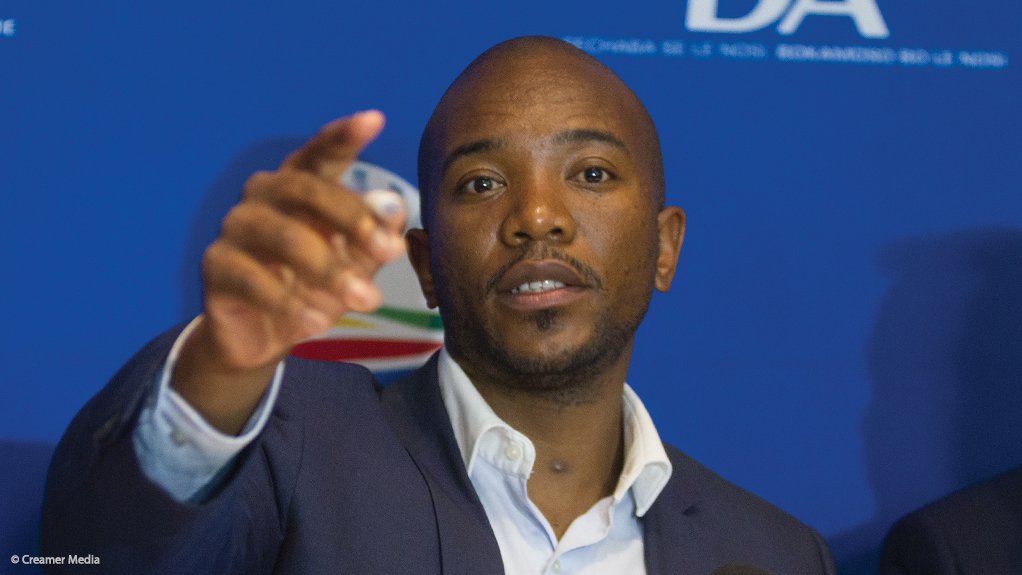Diversifying the energy mix, reducing demand and putting an end to the Eskom monopoly in the energy sector are some of the proposals the Democratic Alliance (DA) has made to mitigate load-shedding.
Speaking during a briefing at Parliament on Monday, DA leader Mmusi Maimane stressed that load-shedding has dire consequences for the South African economy. "We must not forget the impact [of load-shedding] on the economy.
"No person will invest in a nation not energy secure or infrastructurally secure," he said.
Eskom introduced load-shedding on Thursday following pickets by unions demanding up to 15% wage increases. Eskom is facing financial challenges and said it cannot afford any increases.
The power utility said that load-shedding was expected to continue over the next 10 days, as the system stabilises.
During the DA briefing, Maimane said that load-shedding had not just surfaced because of wage negotiations, but rather the core of the problem was the history of state capture at the public enterprise. For this reason, reforms needed to be introduced at Eskom.
Eskom is fiscally dependent and it will "cripple the economy" if no profound reform takes place, he added.
Maimane also spoke on the importance of diversifying the energy mix, as reliance on one form of energy source is not sustainable.
Diversification will also allow for competitiveness in the sector, through reliance on green sustainable energy such as solar power, and even investment in gas. "National government should do more to give incentives to micro-enterprises to get off the sole dependence on the national grid."
The City of Cape Town has a goal of sourcing 20% of its energy from renewables by 2020, from independent power producers (IPPs). "This model of IPPs supplying electricity directly to the grid needs to be replicated across the country in order to improve the competitiveness of this sector," Maimane said.
Both Maimane and DA MP Natasha Mazzone – who is part of the portfolio committee on public enterprises – stressed that Eskom's monopoly was unsustainable.
The DA is working on a private members' bill to make the sector more competitive. Mazzone said it was looking at building capacity, generation and the grid, and more details would be revealed when it was submitted within the next two months.
The DA wants the cities where it governs to adopt the approach it has taken in the Western Cape. The City of Cape Town for example invested in the Steenbras pumped storage scheme, and the hydroelectricity provided from the scheme helped avoid load-shedding on Friday, he said.
Maimane also said its governments in metros had been instructed to improve the distribution infrastructure to ensure there was no disruption to business and industry.
"We inherited a mess at Johannesburg, Tshwane and Nelson Mandela Bay… Not only do we have to balance budget, but we have to invest in infrastructure."
He added that citizens should be incentivised to reduce their demand, and buildings must also look into managing consumption.
15% demand
Maimane said that if Eskom gave in to the 15% wage demand by labour, the National Energy Regulator of South Africa (Nersa) would grant Eskom higher tariffs to cover the labour costs. Ultimately the economy would be brought to its knees if the cost of energy became unsustainable, in addition to fuel hikes and the VAT increase.
"Eskom workers' demands of a 15% increase are unrealistic and unreasonable, given the latest inflation rate of 4.5% and the financial crisis faced by Eskom," said Mazzone.
Maimane added that protecting those employed at Eskom would come at the expense of those without jobs. "It doesn’t matter what you do, the mismanagement of the utility is going to be consequential to economic growth.
"No one will invest in a climate where you can't secure energy, where you can't create the necessary work, where you can’t set up plants and infrastructure," he said.
"Tomorrow morning we can pay Eskom employees more, but the actual consequence will be for those without jobs."
The next 10 days
Mazzone said for the next 10 days of potential load-shedding, the DA would work to get reliable schedules on websites, and teams have been deployed to be in direct contact with Eskom.
Further, there are dedicated crews on cities to deal with trips, often when the system comes back online after load-shedding the power surge causes tripping of sub-stations, she explained.
EMAIL THIS ARTICLE SAVE THIS ARTICLE
To subscribe email subscriptions@creamermedia.co.za or click here
To advertise email advertising@creamermedia.co.za or click here











